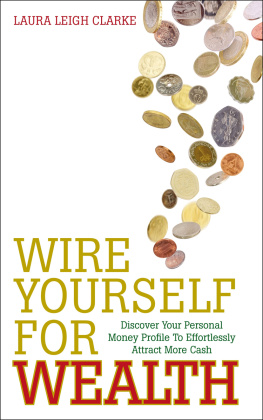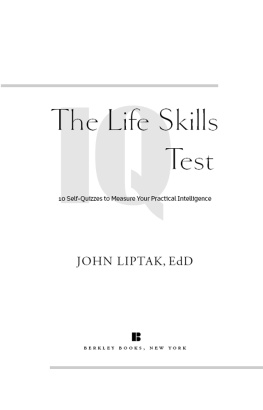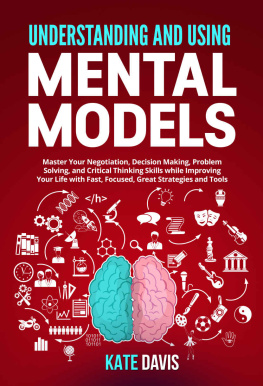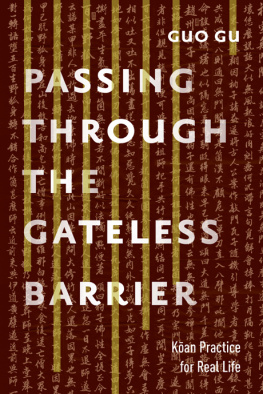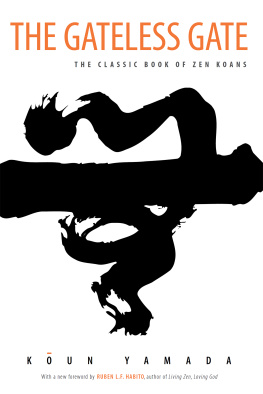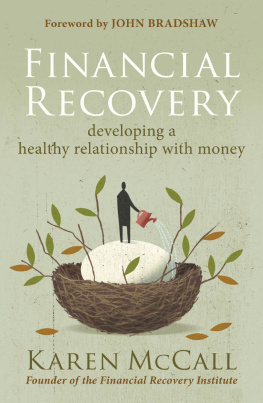Sebastian Marshall - Gateless
Here you can read online Sebastian Marshall - Gateless full text of the book (entire story) in english for free. Download pdf and epub, get meaning, cover and reviews about this ebook. year: 2014, genre: Religion. Description of the work, (preface) as well as reviews are available. Best literature library LitArk.com created for fans of good reading and offers a wide selection of genres:
Romance novel
Science fiction
Adventure
Detective
Science
History
Home and family
Prose
Art
Politics
Computer
Non-fiction
Religion
Business
Children
Humor
Choose a favorite category and find really read worthwhile books. Enjoy immersion in the world of imagination, feel the emotions of the characters or learn something new for yourself, make an fascinating discovery.

- Book:Gateless
- Author:
- Genre:
- Year:2014
- Rating:3 / 5
- Favourites:Add to favourites
- Your mark:
- 60
- 1
- 2
- 3
- 4
- 5
Gateless: summary, description and annotation
We offer to read an annotation, description, summary or preface (depends on what the author of the book "Gateless" wrote himself). If you haven't found the necessary information about the book — write in the comments, we will try to find it.
Gateless — read online for free the complete book (whole text) full work
Below is the text of the book, divided by pages. System saving the place of the last page read, allows you to conveniently read the book "Gateless" online for free, without having to search again every time where you left off. Put a bookmark, and you can go to the page where you finished reading at any time.
Font size:
Interval:
Bookmark:
Gateless
By Sebastian Marshall and Kai Zau
Copright 2014 Sebastian Marshall and Kai Zau
All rights reserved.
Introduction
Capacity
Network
Signal
Assets
Meaning
.
You ever been outside when its really dark out?
If you havent, you might not be imagining it right. Its not scary. Its more surreal. Its like floating in a velvet cloak and top hat, made of the darkest silk you cant see anything for the life of you, but theres a certain smoothness to it.
We rarely get to see such dark times at night these days. Light pollution, I think, is the term. And even if you go camping, wouldnt most people bring their iPhones and gadgets these days?
The first time I can remember being in the darkest of pitch black was at Boy Scout summer camp. For the life of me, I cant remember the name of the camp heck, I cant even remember what state it was in. Colorado? Arizona? New Mexico? Any of those is plausible.
But Ill never forget the texture of that camp. I doubled up on marksmanship, getting down my shot with a gentle, old-fashioned, iron-sights .22 rifle in the morning. After a lunch of some charcoal-grilled food, it was archery training in the afternoon. I remember that archery range hard to hit the target, since most of the arrows had crummy, beaten-up fletchings. Boy Scouts, for all their preparedness and Scout Motto and such, tend to beat the heck out of their tools.
It didnt matter. Crummy fletchings and bad food? Who cares. Youre out past the grasp of the city with all its light pollution. The air was clean, and we picked up little skills here and there swimming, first aid, how to whittle wood, how to start a fire. Fond memories.
But my most prominent memory wasnt the satisfying click of the brass casings when switching new ammunition to the bolt-action; it wasnt watching another poorly fletched arrow veer off course; it wasnt the grills; it wasnt the swimming; it wasnt the hiking; nor was it the camaraderie or skills training.
No, the thing I remember mostly vividly is waking up in the pitch black of night and needing to go to the outhouse.
I mean, you cant see anything.
This was one of the easiest camps you didnt have to pitch a tent. They had old canvas, army-style canopies on big, wooden pallets raised above the ground. I never asked about it, but my guess is that it rained sometimes, and without the raised wood, campers would get washed out in a heck of a bad time. Thats my guess.
So it was easy camping. No pitching a tent. Big, airy canopy, two guys per platform, lots of space compared to the tents youd normally pack in when camping.
But when youve got to go, see, and its pitch black well, thats an issue.
It dawns on me that maybe no kids from Western Civilization will ever experience that again. Maybe I was one of the last ones, what with all the iPhones and devices and what not.
So, heres an ages-old, intractable problem: cant see anything outside, bladders full. What do you do?
Its a harder question than it sounds. The area is unfamiliar. You want to find the designated outhouse; you dont want to be the guy that makes a big mess right there. But then, theres the stuff in the ground roots, brush, rocks. If youre not careful, you turn an ankle. And you cant see a foot in front of you.
I stood there in that enveloping black night for a while, confused. I was just standing there. Sooner or later I had to get moving, but I couldnt quite mentally process it.
The rest of the story is uneventful I slowly climbed down off the elevated platform, made my way through the brush, and came back a few minutes later. I went slowly.
No, what sticks with me is just how dark it was. I could vaguely feel around in the night, and I could vaguely recall the camps layout. But there was no way to see where I was going or to know if I was on the right path. There were no lights. It was a dark night, no moon, nothing to navigate by. The campfires were long past burnt-out. And we didnt have any iPhones.
***
A common thing for children growing up is to sit around and daydream about if theyd been born in an earlier era. Oh, if only Id been born in the Age of Sail, Id have signed on with a ship and seen the world
Oh, if Id been born during the oil rush, Id have built an oil company just like John Rockefeller.
Oh, if I had
Well hey, not to be blunt or anything but you have. We live in one of those eras. Its a gigantic land grab right now. The old structures of civilization are becoming rapidly obsolete. New ground thats never existed before is being staked out. I dont know how Id calculate it mathematically, but I feel pretty confident saying theres 10,000 times more opportunity right now than there was in the Age of Sail or early/mid Industrial Revolution.
The thing is, we know what opportunities paid off in the past looking backwards. We can look things up on Wikipedia on our iPhones; we can consult history for the right answers. But try looking forwards, and its just like a dark night at camp. Even trying to get your bearings can make your head hurt when its that dark and unfamiliar out.
And thats the world we live in. The Age of Exploration seems magical and romantic to us, because we know where all the continents are and all the cool ways to get to and from them. But those first explorers they sailed blindly into the unknown.
We know how the great fortunes were built on railroads, steel, oil, telegraphs. But it was not-so-obvious at the time, when the wildcatters were out digging in the swamps to stake a well, or when oil prices boomed and busted overnight, taking all of ones dreams along with them. It wasnt exactly a reputable, prestigious, forwards-looking thing. It was dark then. They didnt have iPhones to look up what was going to happen next.
There is a certain satisfaction of being in the pure of darkness and away from the light pollution for a while. But stay too long and confusion and malaise sets in. You need a way to orient yourself.
Today, its more possible than ever to get your bearings and to take advantage of all the shifts in the world. Many of the ways are obvious and proven. Many principles are universal.
Yet others are intangible, unintuitive, and elusive. Its this latter group that were most concerned with in Gateless. They are illustrated with examples you can do right away and various methods for thinking, acting, and building your life.
This is a book for thinkers and doers. More than just the latest fluff it would be such a privilege to us as authors if we can unlock new ways of thinking for you. Lets enjoy the brisk, dark night that is upon us and the unexplored territory ahead, just waiting to be claimed. Youre already on the path. What follows are some ways to make the journey ever-so-slightly less perilous, to bring peace of mind, and to achieve more rapid success.
***
The premise of Gateless is rather simple. It comes down to four points
1. Traditionally, people inherited many of lifes resources identities, skills, friends, credentials, livelihoods, and so on from a mix of formal and informal institutions. Most of these are intangible but essential to having a thriving life.
It might sound quaint now, but there was a whole mix of things called social clubs that were very popular for a long time, at least from the Industrial Revolution until now. Religious worship used to tie communities together, and it was where a lot of your friends and business contacts would come from. Alumni communities were closer-knit then, and the company you went to work for would provide more of your skill-development, pension fund, and so on. Within an industry, these standards were all clearly known and could be counted on.
Next pageFont size:
Interval:
Bookmark:
Similar books «Gateless»
Look at similar books to Gateless. We have selected literature similar in name and meaning in the hope of providing readers with more options to find new, interesting, not yet read works.
Discussion, reviews of the book Gateless and just readers' own opinions. Leave your comments, write what you think about the work, its meaning or the main characters. Specify what exactly you liked and what you didn't like, and why you think so.



